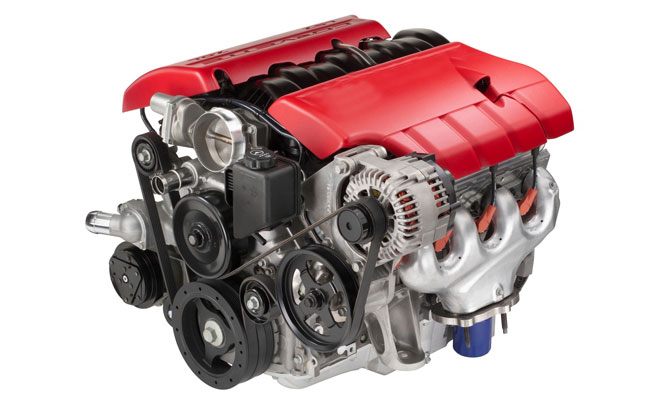A Comprehensive Guide on What to Look for When Purchasing Utilized Engines
When considering an utilized engine purchase, a methodical method is important to stay clear of unforeseen complications. The process starts with a meticulous background check, looking at the Vehicle Identification Number (VIN) and upkeep documents for any kind of warnings. Past history, examining mileage provides insights right into the engine's previous life. Compatibility with your automobile is non-negotiable, as is a detailed physical examination for any kind of indications of wear. Similarly essential is an understanding of available warranty options, which can provide assurance. These preliminary steps are simply the start of ensuring your investment is both audio and safe.
Engine Background Inspect
When taking into consideration the acquisition of a used engine, carrying out a thorough engine history check is a critical step in making sure a trusted and worthwhile investment. A thorough background check includes validating the engine's identification number (VIN) to confirm its credibility and to map its beginning.
Additionally, understanding the maintenance records is crucial. These records reveal exactly how well the engine has been taken care of, suggesting normal oil adjustments, component substitutes, and adherence to manufacturer guidelines. Consistent maintenance is a strong sign of an engine's possible resilience and performance.
Another vital element is exploring any kind of previous cases or fixings. Recognizing whether the engine has actually previously suffered damages, such as from a crash or flooding, can give understanding right into prospective future issues. Repair work, even if expertly done, may impact the engine's dependability.
Finally, a recall check ought to be conducted to ensure there are no unresolved supplier remembers, which might indicate fundamental problems with the engine design. This diligent strategy to examining the engine's background safeguards against unanticipated failings and expensive repair work.
Analyzing Mileage
Although gas mileage is not the single indication of an engine's condition, it stays a critical variable to take into consideration when examining an utilized engine. It's important to identify that an engine with modest or even high mileage might still be in good problem if it has been well maintained.
When assessing mileage, think about the kind of car and its regular use. As an example, freeway miles are usually much less taxing on an engine than city driving, which entails regular stops and begins. Additionally, engines in vehicles made use of mainly for lugging or lugging heavy lots might experience extra tension, possibly minimizing their life expectancy regardless of reduced gas mileage.
It's also suggested to compare the engine's gas mileage with the market standard for similar engines. This contrast can offer beneficial insight into whether the engine has actually been subjected to normal use or excessive wear. Ultimately, while gas mileage is an essential factor to consider, it should be evaluated together with upkeep documents and overall engine condition to make an educated acquiring choice.
Compatibility Confirmation
Making certain compatibility is an essential action when buying article source a made use of engine. Prior to deciding, it is necessary to confirm that the engine is ideal for your car's make, design, and year. This entails checking the engine code, a special identifier that has to correspond to your car's specs. Mismatched engine codes can cause substantial mechanical issues or also total conflict.

Furthermore, take a look at the engine place types to guarantee they align with your automobile's placing points. Misaligned installs can create installation problems and functional concerns. Consulting the car's solution guidebook or an automotive expert can offer guidance in confirming these components. Constantly validate compatibility with any type of extra parts, such as turbochargers or exhaust systems, which Learn More might vary between engine versions. Comprehensive compatibility verification is vital to stay clear of pricey blunders and ensure seamless engine combination.
Evaluating Physical Problem
Evaluating the physical condition of a made use of engine is an essential aspect of the purchasing procedure, as it straight influences the engine's efficiency and long life. Inspect for any noticeable indications of wear and tear, such as cracks, damages, or rust on the engine block and its components.
Analyze the problem of the belts and hose pipes for any kind of signs of fraying or breaking, which can suggest age or previous overheating concerns (used engines for sale). Examine the engine places to ensure they are intact and devoid of extreme wear, as faulty installs can influence engine stability and performance
In addition, look at the color and uniformity of the oil. Dark, sludgy oil may show bad upkeep, while milklike oil could suggest the existence of coolant, meaning prospective head gasket problems. Likewise, look for any type of indicators of leaks, particularly around seals and gaskets, which might signal underlying problems.
Understanding Guarantee Options
When purchasing a used engine, recognizing the warranty options available is essential to guarding your investment. A guarantee gives a safety and security net, making sure that you are shielded against unexpected defects or breakdowns.
Start by figuring out the length of the warranty duration (used engines for sale). Some service warranties might provide coverage for 30, 60, or 90 days, while others can extend approximately a year. The duration of insurance coverage More hints can typically show the seller's confidence in the engine's condition. Pay close interest to what the service warranty explicitly covers-- does it consist of labor prices for repair services, or only the replacement of malfunctioning components? Recognizing these nuances can help you make informed choices.
Additionally, investigate any type of exemptions or invalidating conditions. Certain warranties may come to be void if the engine is set up incorrectly, or if particular maintenance procedures are not adhered to. Ensure that you have a clear understanding of your obligations to keep the service warranty's credibility. By extensively evaluating guarantee choices, you can safeguard comfort and secure your investment in a made use of engine.

Conclusion
Conducting a careful examination when purchasing a used engine is extremely important to guaranteeing an audio investment. Validating the engine's identification number and assessing maintenance records give insight into its history and upkeep. Examining mileage in context aids in comprehending its prior usage. Compatibility checks with the intended vehicle are important, as are extensive assessments for physical wear or damage. Comprehending warranty choices, including their scope and constraints, is vital in protecting against unpredicted problems and expenses.